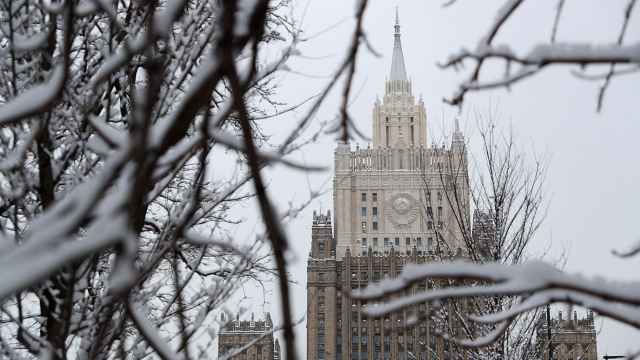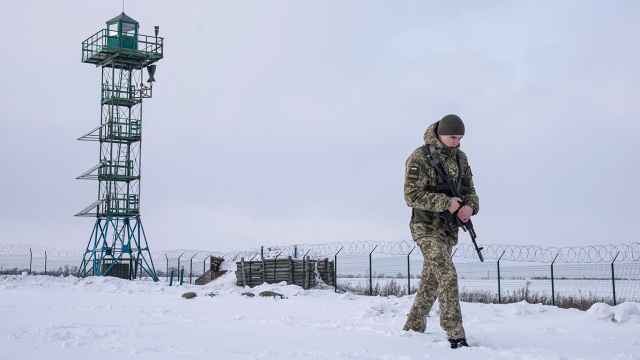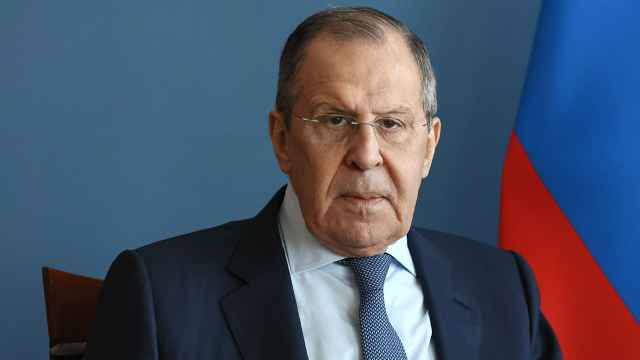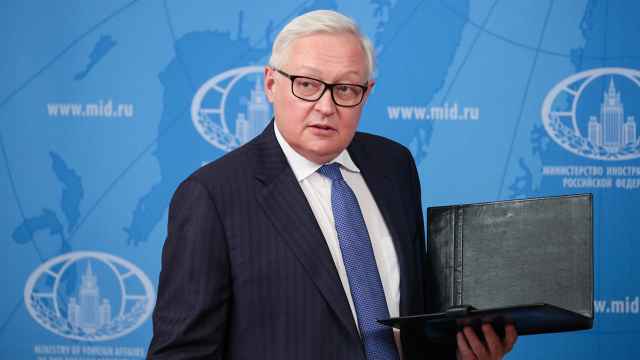Russia did not receive a “positive response” from the United States or NATO on its main security demand concerning Ukraine, Russian Foreign Minister Sergei Lavrov said Thursday, but there may still be room for more discussion of other questions.
Moscow is seeking sweeping guarantees to limit NATO’s expansion in eastern Europe and the post-Soviet space, including a pledge that Ukraine will never join the Western military alliance.
But in written responses to Moscow submitted on Wednesday evening, the U.S. and NATO rejected Russia’s demand to block Ukraine from NATO, reiterating their commitment to NATO’s open-door membership policy.
“There was no positive response to the main question” of Russia’s demands, Lavrov said in a statement, adding that "there is a response which gives hope for the start of a serious conversation on secondary questions."
In separate press conferences on Wednesday, U.S. Secretary of State Antony Blinken and NATO Secretary General Jens Stoltenberg said they had outlined diplomatic pathways out of the current crisis with several areas for increased cooperation.
While Blinken and Stoltenberg said they did not plan to make their responses public, Lavrov indicated that their replies would be published “soon.”
“One can’t say that our ideas and concerns were taken into account,” Kremlin spokesman Dmitry Peskov said in a call with journalists on Thursday.
Peskov said the documents are now in the hands of Russian President Vladimir Putin.
“All these papers are with the president,” he said. "Let's not rush to conclusions, it takes time to analyze.”
Western countries have for months raised alarm over Russian troop build-up near Ukraine’s borders, warning of an “imminent” invasion of Moscow’s pro-Western neighbor.
The West has warned of severe, unprecedented sanctions on Russia if it were to invade Ukraine.
Russia denies planning to attack Ukraine, accusing the U.S. and NATO of fueling regional tensions.
A Message from The Moscow Times:
Dear readers,
We are facing unprecedented challenges. Russia's Prosecutor General's Office has designated The Moscow Times as an "undesirable" organization, criminalizing our work and putting our staff at risk of prosecution. This follows our earlier unjust labeling as a "foreign agent."
These actions are direct attempts to silence independent journalism in Russia. The authorities claim our work "discredits the decisions of the Russian leadership." We see things differently: we strive to provide accurate, unbiased reporting on Russia.
We, the journalists of The Moscow Times, refuse to be silenced. But to continue our work, we need your help.
Your support, no matter how small, makes a world of difference. If you can, please support us monthly starting from just $2. It's quick to set up, and every contribution makes a significant impact.
By supporting The Moscow Times, you're defending open, independent journalism in the face of repression. Thank you for standing with us.
Remind me later.






